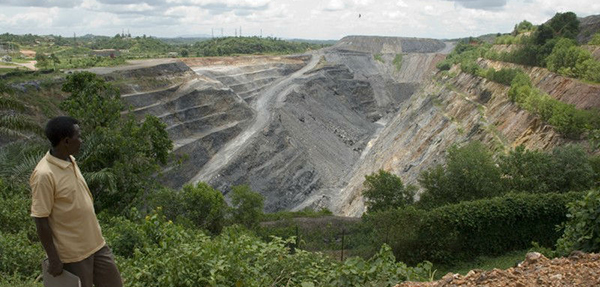In August 2018, the local government of Accra, Ghana, in West Africa, appropriated 1,800 homes for demolition to make way for, among others, tomato retailers. Officials had already begun plotting the land for its new use when residents of the largely poor neighborhood erupted in protest, to no avail.
The extreme usurpation of land wasn’t entirely illegal—nor was it entirely legal. And therein lies a new “idiom of planning” overtaking many African cities as they navigate rapid urbanization under competing land ownership and use laws that date back to British Colonial rule.
University at Buffalo urban planner Emmanuel Frimpong Boamah recently published an analysis of the complex legal and political backdrop to land tenure in Ghana in the journal Environment and Planning: Politics and Space. Frimpong Boamah is an assistant professor of urban and regional planning in UB’s School of Architecture and Planning, and has a faculty appointment in the university’s Community for Global Health Equity.
In “Planning by (mis)rule of laws: The idiom and dilemma of planning within Ghana’s dual legal land systems,” Frimpong Boamah and co-author Clifford Amoako of the Kwame Nkrumah University of Science and Technology in Kumasi, Ghana, argue that the competing systems of colonially inherited statutory and customary property law create vacuums of power and opportunities for exploitation of poor and vulnerable groups by both state and non-state authorities.
The dual system dates back to 1894, when the Aborigines Right Protection Society was formed to resist the Crown Lands Bill, which sought to vest the country’s land and mineral rights in the British Crown. The resulting dispute between customary land owners and the state created parallel legal land systems that persist today.
According to the authors, the land and planning laws empower both customary and statutory officials without clear distinctions in authority on land ownership and use decisions. As a result, officials navigate the spaces between the law to accumulate wealth and power.
For instance, in the Accra case, the local government—the Accra Metropolitan Assembly (AMA)—over-applied one part of statutory planning law, appropriating land based on an a priori, or after-the-fact, non-compliance with the government’s own planned use and development scheme. Yet the local government conveniently placed itself outside these same statutory planning and land laws by not consulting residents before carrying out the demolition.
Customary authorities, such as tribal leaders, similarly act within and outside their own customary laws, for instance, by negotiating with state and prospective land buyers when the land is held in public trust, (re)leasing publicly acquired lands to private developers, and engaging in double dipping within Ghana’s deregulated land market—leasing the same land parcel to multiple developers.
Such (mis)rule of planning and land laws by state and customary authorities results in actions that “(un)map people, places and informal economic activities,” the authors write. “It is a conflict-ridden nexus where those owning the land (indigenous institutions) are different from those deciding on how and what to use the land for (state planning institutions).”
Focusing their research on two case studies—the rapidly urbanizing Ghanian cities of Accra and Kumai—the authors conducted interviews with dozens of customary and state authorities, residents, developers and opinion leaders, while bringing together a corpus of empirical work, newspaper articles and existing literature on Ghana’s land tenure and planning systems.
The paper serves as an “alternative conceptual lens” on the complex relationship between Ghana’s planning system and its dual legal land systems, which, the authors state, “have paralyzed planning in Ghana.”
Moving forward, Frimpong Boamah and Amoako argue more research is needed—including a political economy analysis of planning and land laws, which can help planners move beyond an overemphasis on enforcing planning rules. As the authors state, “what’s the point of enforcing rules that marginalize poor and vulnerable groups in society.”
Frimpong Boamah researches how governance of land, water and food can facilitate sustainable and healthy urbanism in both Global North and South countries.
Source: phys






